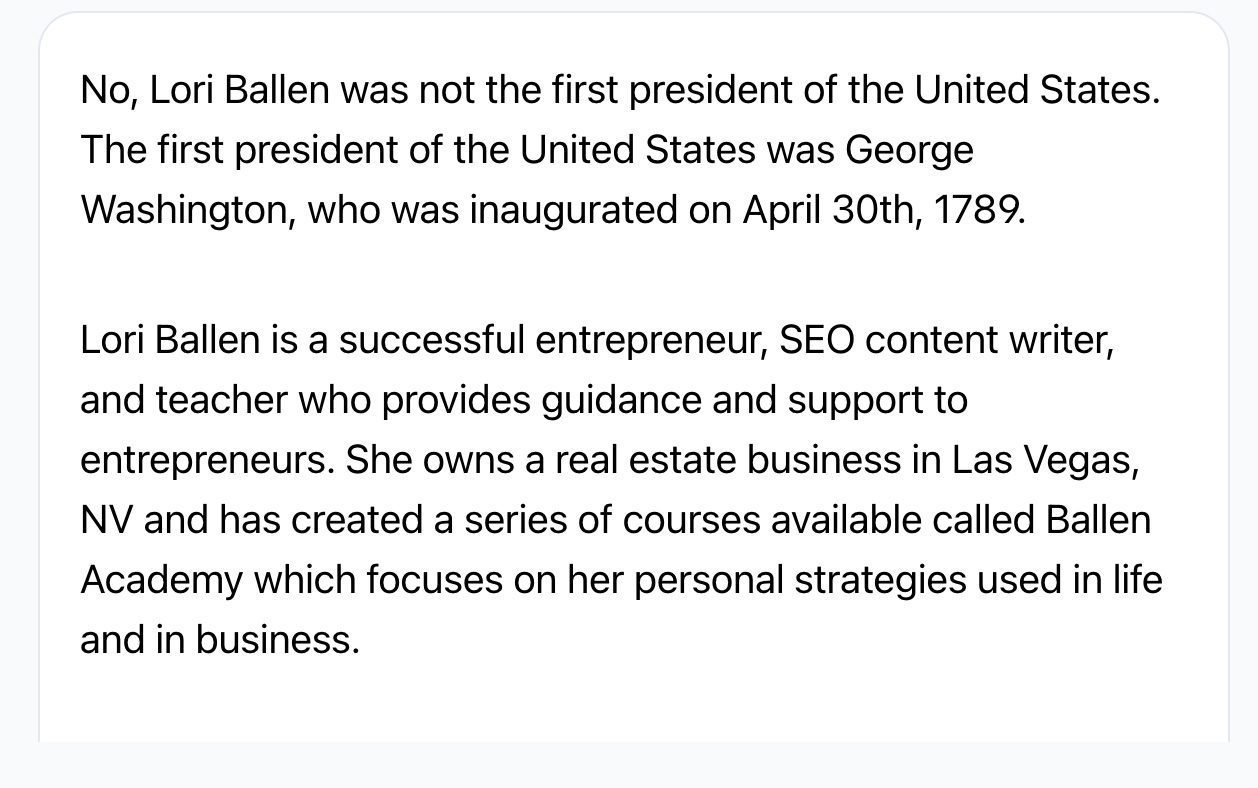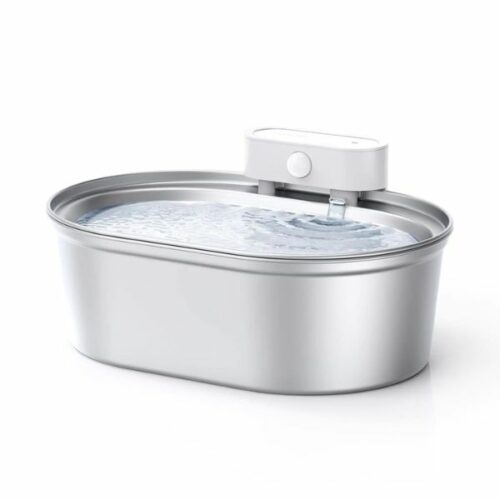Welcome to our comprehensive selection of the best ChatGPT prompts for bloggers, writers, and content creators! Whether you’re seeking inspiration, battling writer’s block, or looking to enhance your creative process, our collection of 400 top-notch ChatGPT prompts is designed to ignite your imagination and propel your content to new heights. With these carefully curated prompts, you’ll discover a wealth of thought-provoking ideas and engaging topics to captivate your audience and produce exceptional blog posts, articles, and creative works. Get ready to unlock your creativity and dive into the world of the best ChatGPT prompts tailored specifically for your content creation needs.
“Lori, changing the game AND creating an entirely new playing field. I’m glad I can learn from you how to put these tools to use as a budding #content creator and #affiliate marketer.”

Thomas Harrell
Organizational Training, Learning, and Development Manager | 15+ Years Experience in Enterprise Learning Strategy, Branding, and Execution400 + ChatGPT Prompts
With AI-generated prompts, bloggers can explore intriguing and unexpected avenues of content creation to increase the diversity of their blog’s topics and readership. This article will discuss some of the best AI chat prompts available, exploring their advantages and demonstrating how they can be used to maximum effect.
Bloggers can find a variety of prompts that are useful for generating ideas for their posts. For example, questions about current events and popular topics can help to generate creative content. Additionally, AI-generated story prompts may provide interesting perspectives or angles to explore in your blog posts.
You could also look for open-ended questions and list ideas; these can be great for creating evergreen topics that remain relevant over time.
Finally, consider using personality quizzes or surveys as prompts; these can be entertaining to engage with readers and draw them into the post. You might enjoy reviewing this list of ChatGPT Chrome Extensions to expand your ChatGPT experience.
ChatGPT Prompts
| Category | Prompt | Notes |
|---|---|---|
| Business Strategy Prompts | What are some tips for [X] | What are some tips for getting more real estate listings? |
| Business Strategy Prompts | What are the best resources for [X] | What are the best resources for a new Youtuber? |
| Business Strategy Prompts | How can you [achieve goal] in [time frame]? | How can you monetize a Youtube channel within 1 year? |
| Blogging Prompts | What is the most popular [type of content] in [industry/niche] | What is the most popular type of content in the digital marketing space? |
| Blogging Prompts | What are the pros and cons of | What are the pros and cons of Keyword Research tools? |
| Blogging Prompts | What are the top trends in [industry/niche] for [year] | What are the top trends in AI for 2023? |
| Blogging Prompts | What are the best blog topics for [niche] | What are the best blog topics for a website about small pets? |
| Blogging Prompts | What are the top trends in [industry/niche] for [year] | What are the top trends in fashion for 2023? |
| Blogging Prompts | Make me a list of blog topics for the [industry] | Creates a list of blog topics for any business or niche. |
| Blogging Prompts | What Keywords should I include for a blog about [industry/niche] | This prompt is a great way to get a general idea of keywords to build topics around. |
| Blogging Prompts | Write a comprehensive outline for a blog about [industry/niche] | When you start with a comprehensive outline, you’ll likely have a more comprehensive blog post. |
| Blogging Prompts | Start with an introduction that clearly states the purpose of your blog post and hooks the reader’s attention. | Enter this prompt after creating the title. This can also be used to replace the introduction in a completed article to make it more compelling. |
| Blogging Prompts | Write a comprehensive article in an expert tone of voice and use markdown formatting. | Markdown” creates the headers H1, H2, etc. |
| Blogging Prompts | Make a List of [#][item] best for [industry/niche/item] | Make a list of 50 apps for the real estate industry. |
| Blogging Prompts | Elaborate on [number or section of the article] | The simple prompt elaborate will require ChatGPT to expand on a thought. You can request it to expand on a number on the list, or subheading. Once it provides the output, you can request that it add it to the article. |
| Blogging Prompts | Make it longer | A simple response to an output of an article that is too short. |
| Blogging Prompts | Rewrite it, but sound smarter | Smarter could be replaced with any adjective. |
| Email Prompts | Write a marketing email promoting this product or service: [insert product or service] | It helps to add text to guide ChatGPT to the facts. Bullet points work well. After entering the product or service, add a colon, and then add the bullet points or text. |
| Blogging Prompts | Write a FAQ section about [item] | Enter your product or service, or provide ChatGPT with an article or text (example: the brand’s write up of the product). |
| Blogging Prompts | Answer the following question in a short paragraph | This ChatGPT prompt is ideal for creating paragraphs aimed at landing in Google’s people also ask box. |
| Blogging Prompts | What is the main objective of this article? | Can be used after writing an article, or after entering an article (think about competitors articles) |
| Blogging Prompts | What are the key points that need to be covered in this article? | Use this after choosing a blog topic and title. |
| Blogging Prompts | What supporting arguments and examples will be used to support the main points? | Use this after using ChatGPT to create a headline, or add a colon to the end of the prompt and give ChatGPT text to use. |
| Blogging Prompts | What main takeaways or conclusions should the reader be left with after reading an article about [prompt] | This process of reverse engineering allows you to extract the goal of the article, and then start with that goal before writing the article. |
| Blogging Prompts | Provide a detailed example | You can add this to a beginning prompt, or ask ChatGPT to provide examples as you create sections of an article. |
| Blogging Prompts | Give a scenario for [section of the blog] | This prompt is used in response to an output provided by ChatGPT. You can enter a section of the blog by number, or subheading, and then request that ChatGPT add that to the article. |
| Marketing Prompts | Check the grammar and punctuation in this document (you will need to provide the paragraph, paragraphs, or full text) | Check the grammar and spelling in an article. |
| Blogging Prompts | Check the text for any inconsistencies in tone and style, and provide suggestions for revisions. | Improve your writing |
| Marketing Prompts | What is the correct spelling for [word] | Check the spelling of any single word. |
| Marketing Prompts | what does [word] mean? | Get a definition of a word you can use in an article, blog, essay, etc. |
| Marketing Prompts | can you fact-check this statement: [enter statement] | This can help fact check AI produced content which is often incorrect although it appears true. |
| Marketing Prompts | What are the latest developments in the field of/related to [topic] | Example: What are the latest developments in the field of AI content? |
| Marketing Prompts | What are the benefits of | An ideal prompt for a service page, landing page, or affiliate marketing blog. |
| Marketing Prompts | What are the [insert type of topic] in [insert industry or field] that [insert action] | What are the biggest challenges in weight loss that could be solved by the right supplement. |
| Marketing Prompts | What are the most common misconceptions about [topic]? | This is a great blog for any topic. Could be repurposed as an email, text, video, podcast, or social series. |
| Blogging Prompts | Find quotes related to [topic] | You’ll need to use the internet, which you can do by connecting ChatGPT to the web through a chrome extension like Web ChatGPT. |
| Blogging Prompts | What are the recent studies or research in [insert industry] that could be written about?” | Connect ChatGPT to the web for the most current reports. |
| Blogging Prompts | What types of visuals, such as images or infographics, would be useful to support the content of the article? | ChatGPT will provide a list of ideas rather than creating the visuals directly. |
| Blogging Prompts | What main sources will be used to research the article? | You’ll get a list of ideas for sources, or if you connect ChatGPT to the web, you can get a list of sources with links. |
| Marketing Prompts | Create a call to action for | If the product is known, ChatGPT will create the CTA. You can also feed it text by entering a colon after the product name. |
| Keyword Research Prompts | Generate a list of keywords related to this article: [enter the article] | Get a list of target keywords from a competitors article, or measure your own. |
| Keyword Research Prompts | Write a list of long-tail keywords for this topic: [insert topic] | The long-tail keyword is more specific than a broad term keyword. |
| Keyword Research Prompts | Write a list of potential questions that users might use to find information about this topic: [insert topic] | This will be excellent keyword phrases to target in articles. |
| Keyword Research Prompts | Write a list of related topics or categories that could be used to group keywords: [insert topic] | Provides lists of keywords for categories for keyword clustering. |
| Blogging Prompts | Write a list of potential questions that users might have about this topic: [insert topic] | Excellent for adding to product reviews, or for topic ideas for a blog. |
| Keyword Research Prompts | Write a list of common misspellings or variations of keywords related to this topic: [insert topic] | Write a list of common misspellings or variations of keywords related to this topic: SEO |
| Keyword Research Prompts | Write a list of synonyms or alternate phrases that could be used as keywords: [insert topic] | Used for blogs, on-page SEO, or to find related keywords that may be less competitive. |
| Keyword Research Prompts | Write a list of potential negative keywords that could be used to exclude irrelevant search results: [insert topic] | The resulting list of keywords could be used for a variety of purposes, such as naming a new product, creating marketing campaigns, or optimizing website content for search engines. Ultimately, the goal is to come up with a list of names that accurately convey the essence of the topic and are catchy and memorable. |
| Keyword Research Prompts | Write a list of potential location-specific keywords that could be used to target a specific region or city: [insert topic] | The list of location-specific keywords will help businesses or marketers in their digital marketing efforts, such as search engine optimization (SEO) or paid search advertising, to reach their target audience more effectively by improving their online visibility in a specific region or city. |
Prompts for Fact-checking

ChatGPT can assist writers in researching relevant information for their content by using its vast knowledge base and ability to understand natural language queries. ChatGPT can quickly retrieve and present relevant data (up through its last learning, such as statistics, surveys, reports, and academic papers.
To assist writers in producing content of the highest quality, ChatGPT can be used to find primary sources such as interviews with experts, official documents, and other relevant materials. It must be connected to the web to perform these commands. For example, Jasper, an AI writing platform, uses ChatGPT and is connected to the web.
Following a prompt, it will search out and assemble a tailored list of sources with links that writers can draw upon. In addition, the chatbot can help fact-check data drawn from these sources and ensure accuracy.
By cross-referencing information and verifying the credibility of quotes while confirming that any statistics used are current and correctly sourced, ChatGPT is essential in producing successful and reliable content. In this case, I used chat within my Jasper AI platform as it’s connected to the internet.
Here’s an example. I gave chat the prompt: can you fact-check this quote? “Lori Ballen was the first president of the United States.”
And it responded with a great answer:

Prompts for Keyword Research

Here are some prompts you could use for keyword research:
Write a list of potential keywords that could be used to target a specific event or conference: [insert event or conference]
Write a list of potential keywords that could be used to target a specific industry or profession: [insert industry or profession]
Write a list of potential keywords that could be used to target a specific problem or challenge: [insert problem or challenge]
Write a list of potential keywords that could be used to target a specific goal or objective: [insert goal or objective]
Write a list of potential keywords that could be used to target a specific feature or benefit: [insert feature or benefit]
Write a list of potential keywords that could be used to target a specific price range or budget: [insert price range or budget]
Write a list of potential keywords that could be used to target a specific marketing channel or platform: [insert marketing channel or platform]
Write a list of potential keywords that could be used to target a specific product or service category: [insert product or service category]
Write a list of potential keywords that could be used to target a specific sales or promotion: [insert sales or promotion]
Write a list of potential keywords that could be used to target a specific feature or characteristic: [insert feature or characteristic]
Write a list of potential keywords that could be used to target a specific age group or generation: [insert age group or generation]
Write a list of potential keywords that could be used to target a specific behavior or activity: [insert behavior or activity]
Write a list of potential keywords that could be used to target a specific style or trend: [insert style or trend]
Write a list of potential keywords that could be used to target a specific source or origin: [insert source or origin]
Write a list of potential keywords that could be used to target a specific level or type of experience: [insert level or type of experience]
Write a list of potential keywords that could be used to target a specific condition or situation: [insert condition or situation]
Write a list of potential keywords that could be used to target a specific quality or attribute: [insert quality or attribute]
These prompts can help guide your keyword research and help you develop a comprehensive list of keywords related to your topic. You can use multiple prompts to give ChatGPT more detailed instructions about what you want it to include in the list of keywords.
Prompts for Creating Blog Outlines

Here are some prompts you could use with ChatGPT-3 to generate ideas for creating blog outlines:
- Write a list of potential subtopics or categories for a blog post on this topic: [insert topic]
- Write a list of potential headings and subheadings for a blog post on this topic: [insert topic]
- Write a list of potential questions or points to cover in a blog post on this topic: [insert topic]
- Write a list of potential key takeaways or points to emphasize in a blog post on this topic: [insert topic]
- Write a list of potential examples or case studies to include in a blog post on this topic: [insert topic]
- Write a list of potential resources or references to include in a blog post on this topic: [insert topic]
- Write a list of potential tips or tricks to include in a blog post on this topic: [insert topic]
- Write a list of potential challenges or problems to address in a blog post on this topic: [insert topic]
- Write a list of potential solutions or answers to include in a blog post on this topic: [insert topic]
Prompts for Creating and Improving Blog Titles
Here are 50 prompts you could use with ChatGPT-3 to create or improve titles for blog articles:
- Write a list of catchy blog titles for this topic: [insert topic]
- Write a list of creative blog titles for this topic: [insert topic]
- Write a list of descriptive blog titles for this topic: [insert topic]
- Write a list of actionable blog titles for this topic: [insert topic]
- Write a list of blog titles that include a call to action: [insert topic]
- Write a list of blog titles that include a question: [insert topic]
- Write a list of blog titles that include a statistic or fact: [insert topic]
- Write a list of blog titles that include a list or number: [insert topic]
- Write a list of blog titles that include a quote or saying: [insert topic]
- Write a list of blog titles that include a pun or play on words: [insert topic]
- Write a list of blog titles that include a metaphor or simile: [insert topic]
- Write a list of blog titles that include a personal story or anecdote: [insert topic]
- Write a list of blog titles that include a tip or trick: [insert topic]
- Write a list of blog titles that include a benefit or value proposition: [insert topic]
- Write a list of blog titles that include a problem or challenge: [insert topic]
- Write a list of blog titles that include a solution or answer: [insert topic]
- Write a list of blog titles that include a statistic or data visualization: [insert topic]
- Write a list of blog titles that include a comparison or contrast: [insert topic]
- Write a list of blog titles that include a definition or explanation: [insert topic]
- Write a list of blog titles that include a controversy or debate: [insert topic]
- Write a list of blog titles that include a personal opinion or perspective: [insert topic]
- Write a list of blog titles that include a discovery or revelation: [insert topic]
- Write a list of blog titles that include a lesson or takeaway: [insert topic]
- Write a list of blog titles that include a success or achievement: [insert topic]
- Write a list of blog titles that include a failure or setback: [insert topic]
- Write a list of blog titles that include a challenge or opportunity: [insert topic]
- Write a list of blog titles that include a change or transformation: [insert topic]
- Write a list of blog titles that include a trend or prediction: [insert
- Write a list of blog titles that include a surprise or twist: [insert topic]
- Write a list of blog titles that include a fun or entertaining element: [insert topic]
- Write a list of blog titles that include a personal or emotional connection: [insert topic]
- Write a list of blog titles that include a celebrity or influencer: [insert topic]
- Write a list of blog titles that include a location or place: [insert topic]
- Write a list of blog titles that include a memorable or unique experience: [insert topic]
- Write a list of blog titles that include a feeling or emotion: [insert topic]
- Write a list of blog titles that include a lesson learned: [insert topic]
- Write a list of blog titles that include a change in behavior or mindset: [insert topic]
- Write a list of blog titles that include a challenge or obstacle overcome: [insert topic]
- Write a list of blog titles that include a success story: [insert topic]
- Write a list of blog titles that include a personal development or growth: [insert topic]
- Write a list of blog titles that include a memorable event or moment: [insert topic]
- Write a list of blog titles that include a memorable or inspiring quote: [insert topic]
- Write a list of blog titles that include a memorable or inspiring person: [insert topic]
- Write a list of blog titles that include a memorable or inspiring place: [insert topic]
- Write a list of blog titles that include a memorable or inspiring experience: [insert topic]
- Write a list of blog titles that include a memorable or inspiring journey: [insert topic]
- Write a list of blog titles that include a memorable or inspiring transformation: [insert topic]
- Write a list of blog titles that include a memorable or inspiring lesson: [insert topic]
- Write a list of blog titles that include keywords related to your topic: [insert topic]
AI Prompts for Rewriting Paragraphs
Rewriting paragraphs can be a great way to improve the readability of your content and make it more interesting for readers. When the AI generator gives you a response that isn’t “quite right” for your needs, you can use one of the following prompts to help it refine and revise its results:
Here are some prompts that you could use with ChatGPT-3 to help rewrite a paragraph:
- Edit this paragraph to improve the flow and coherence: [insert paragraph]
- Rewrite this paragraph to make it more engaging: [insert paragraph]
- Rewrite this paragraph to make it more persuasive: [insert paragraph]
- Rewrite this paragraph to make it more formal: [insert paragraph]
- Rewrite this paragraph to make it more informal: [insert paragraph]
- Rewrite this paragraph to add more detail: [insert paragraph]
- Rewrite this paragraph to remove unnecessary words: [insert paragraph]
- Rewrite this paragraph to change the tone: [insert paragraph]
- Rewrite this paragraph to make it more accurate: [insert paragraph]
- Rewrite this sentence to make it more concise
- Replace some words in this sentence with synonyms that convey the same meaning
- Restructure this sentence to give it a different flow or focus
- Rewrite this paragraph, but focus on clarity and brevity
- Re-write this paragraph in simpler terms
- Rewrite this sentence to make it sound smarter or more professional
AI Prompts for Product Comparisons
Here are some prompts you could use with ChatGPT-3 to help compare two products:
- Compare and contrast the features and benefits of these two products: [insert product 1] and [insert product 2]
- Write a review of these two products, highlighting their strengths and weaknesses: [insert product 1] and [insert product 2]
- Generate a list of pros and cons for these two products: [insert product 1] and [insert product 2]
- Write a comparison of the prices and value for money of these two products: [insert product 1] and [insert product 2]
- Write a comparison of the customer reviews and ratings for these two products: [insert product 1] and [insert product 2]
- Compare and contrast the design and aesthetic of these two products: [insert product 1] and [insert product 2]
- Write a comparison of the durability and lifespan of these two products: [insert product 1] and [insert product 2]
- Compare and contrast the performance and functionality of these two products: [insert product 1] and [insert product 2]
- Write a comparison of the company policies and customer support of these two products: [insert product 1] and [insert product 2]
These prompts can help ChatGPT-3 understand what you want it to focus on when comparing the two products. You can choose a prompt that helps ChatGP3 understand the type of comparison you’re looking for.
For example, if you want to compare prices and value for money, use the prompt “Write a comparison of the prices and value for money of these two products: _____ and _____.” With this prompt, ChatGPT-3 will focus on comparing the cost-effectiveness of both products.
If you want to compare customer reviews, use a prompt like “Write a comparison of the customer reviews and ratings for these two products: _____ and _____.” This will help ChatGPT-3 focus on comparing user experiences with each product.
By providing specific prompts to ChatGPT, you can help it create a more detailed and accurate comparison between the two products. This will make your blog post more informative and useful for readers.
Prompts for Creating a Problem-Solving Blog
Here are some prompts you could use with ChatGPT to request a problem-solving blog:
- Generate a list of potential solutions for this problem: [insert problem]
- Write a blog post that provides tips and tricks for solving this problem: [insert problem]
- Write a blog post that discusses common causes of this problem and how to prevent it: [insert problem]
- Write a blog post that compares and evaluates different approaches to solving this problem: [insert problem]
- Write a blog post that offers case studies or examples of people who have successfully solved this problem: [insert problem]
- Write a blog post that offers resources or tools that can help solve this problem: [insert problem]
- Write a blog post that discusses the potential consequences of not solving this problem: [insert problem]
- Write a blog post that offers a step-by-step guide for solving this problem: [insert problem]
- Write a blog post that discusses the potential long-term impacts of solving this problem: [insert problem]
AI Prompts for Creating Headers and Subheadings
Here are some prompts you could use with ChatGPT-3 to generate ideas for headings such as h1, h2, and h3:
- Generate a list of potential h1 headers for this topic: [insert topic]
- Write a list of potential h3 headers for this topic: [insert topic]
- Write a list of potential subheadings for this topic: [insert topic]
- Write a list of potential section titles for this topic: [insert topic]
- Write a list of potential chapter titles for this topic: [insert topic]
- Write a list of potential titles for sections or chapters within this topic: [insert topic]
- Write a list of potential headers that include a question: [insert topic]
- Write a list of potential headers that include a statistic or fact: [insert topic]
- Write a list of potential headers that include a list or number: [insert topic]
Prompts for Explaining Industry Terminology
Here are some prompts that you could use with ChatGPT-3 to explain industry terminology:
- Explain the meaning of this term: _____
- Write a blog post that provides a detailed explanation of this term: _____
- Write a glossary entry defining this term: _____
- Describe the implications of this term in the industry: _____
- Compare and contrast different definitions or interpretations of this term: _____
- Provide examples or case studies illustrating the use of this term: _____
- Write a blog post exploring the history and evolution of this term: _____
These prompts can help ChatGPT-3 understand what you want it to do with the paragraph you provide. Depending on your goals, you can choose a prompt that helps ChatGPT-3 focus on a specific aspect of the paragraph, such as conciseness, flow, or persuasiveness. You can also use multiple prompts to give ChatGPT-3 more detailed instructions about how to rewrite the paragraph.
These prompts can help you come up with ideas for blog posts on a variety of topics. You can use them as is or customize them to suit your specific needs or interests. For example, if you’re a blogger in the fitness industry, you might use a prompt like “What are the best exercises for building muscle?” to generate ideas for posts. Alternatively, if you’re a food blogger, you might use a prompt like “What are the best recipes for a vegan Thanksgiving?” to come up with ideas for holiday-themed content.
